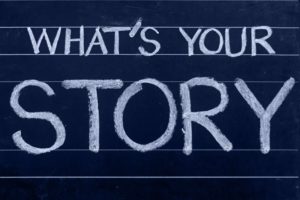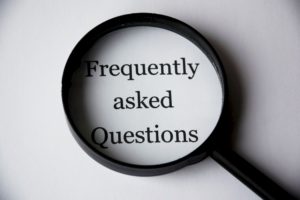When you think the interview went really well…
When market statistics show that more jobs are being created and unemployment rates are very low, it’s easy for candidates to be overconfident, if not outright unrealistic. The availability of more jobs is great — but just because you are intrigued with a particular company or like the sound of a role, that doesn’t make you competitive, and there is no guarantee that it will be easy to get an offer. It is still critical to make a strong effort and prepare for an interview.
For some particularly in-demand, highly talented engineers, data scientists and medical professionals, there is reason to be confident about becoming employed. On the other end of the spectrum, for entry-level customer service/hospitality jobs, anyone able to type 35 words a minute while talking on the phone could be a shoo-in. Yet there is still a pretty big space between really sophisticated jobs and lower-level jobs where a great majority of people’s skills and experience fit. Many cool jobs are in this broad middle space, and they are still highly competitive.
 It’s reasonable to say that the better prepared a candidate is, the better the outcome is at the interview. Having talent but not having the ability to articulate value or express awareness of a company’s needs can be a real deal breaker. Showing interest is important, but it won’t carry someone when they think their enthusiasm will outweigh their lack of the fundamental skills for the role they are interviewing for. It is not uncommon for employers to interview a candidate based on assumptions made from the resume. The candidate will still be required to back up any implied strengths/skills in the interview. Regardless of a candidate’s level of confidence, there are no guarantees, especially when they are moving in a new direction. Without preparation, what might seem to be a shoo-in can turn out to be a big goose egg.
It’s reasonable to say that the better prepared a candidate is, the better the outcome is at the interview. Having talent but not having the ability to articulate value or express awareness of a company’s needs can be a real deal breaker. Showing interest is important, but it won’t carry someone when they think their enthusiasm will outweigh their lack of the fundamental skills for the role they are interviewing for. It is not uncommon for employers to interview a candidate based on assumptions made from the resume. The candidate will still be required to back up any implied strengths/skills in the interview. Regardless of a candidate’s level of confidence, there are no guarantees, especially when they are moving in a new direction. Without preparation, what might seem to be a shoo-in can turn out to be a big goose egg.
Being too comfortable can cause you to become imprecise, sloppy or careless
You may have had an experience like this: The interviewer was pleasant and cordial and made you feel right at home. You may even have had an instant connection. (Note: strong interviewers are supposed to make the candidate feel comfortable.) You had a great conversation about energy conservation and your dogs. Those are all good things, but casual conversation can lead a candidate into getting too comfortable. Being too comfortable can cause you to become imprecise, sloppy or careless.
All too frequently I hear these famous last words from candidates: “The interview went really well.” Of course, that statement prompts me to ask questions: “Really? Tell me more. What did they ask you? How did you respond? Describe their body language. What are the next steps? When?” Sadly, some candidates can’t recall the questions they were asked, the answers they gave or any specifics about the process. Others may be able to tell me about the questions asked and their answers, but they often have an inaccurate interpretation of the interviewer’s response.
Smiles and nods are good, but they may be misleading with a skilled interviewer. Sometimes the number of questions that didn’t produce strong answers are overlooked or glossed over because the interviewer had a poker face or was exceptionally cheery. When debriefing a candidate, I may point out how a statement could have led the interviewer in the wrong direction or influenced them in a less than positive way. I might get the following response from the candidate: “Well, I didn’t really say it like that” or “Those weren’t my exact words.” Of course, I could be wrong in my interpretation, but I think it is safe to say that the evidence of what really transpired lies in the outcome. It’s pretty clear that something contrary to the candidate’s perception occurred when they never hear from the company again, or when they do, it is the standard “we’ve selected someone who more closely fits our needs. Good luck with your job search.”
 Overall, it’s easier to determine what may have actually transpired when a candidate is knowledgeable about the company and the job and when they have previously prepared answers to the most commonly asked questions. It’s pretty simple to recognize when the questions that were asked were close to/relate to what was rehearsed or led to what they had studied about the company. It’s also easier to remember the answer that was given and then be able to dissect how it deviated from what was prepared. Winging it only makes a bad performance harder to correct. Even the simplest preparation provides an outline of what to relate back to if things really didn’t go as well as you think they did. Some rules of thumb:
Overall, it’s easier to determine what may have actually transpired when a candidate is knowledgeable about the company and the job and when they have previously prepared answers to the most commonly asked questions. It’s pretty simple to recognize when the questions that were asked were close to/relate to what was rehearsed or led to what they had studied about the company. It’s also easier to remember the answer that was given and then be able to dissect how it deviated from what was prepared. Winging it only makes a bad performance harder to correct. Even the simplest preparation provides an outline of what to relate back to if things really didn’t go as well as you think they did. Some rules of thumb:
Research. Know as much as you can about what the company does, why they do it and who their customers are. Research leadership and any employees you can locate to get a sense of their backgrounds. Find out about the tools you may need to use on the job.
Script. Prepare answers to frequently asked questions. Use examples of your work using the simple technique of describing the problem, the action you took and the result. Don’t assume you will answer on the fly with the most relevant examples or the most accurate words.
Practice. Let someone test your ability to listen carefully and grasp the intent of the interviewer’s questions. Although they may not be the exact questions you have prepared for, the key point is to understand what they are driving at and know what to respond with.
Bottom line: the most realistic measurement of an interview having gone “really well” is one that culminates in a bona fide offer. If you didn’t get one and someone else (from outside of the company) did, then you may want to look at how well you prepared and if overconfidence may have blinded you.





